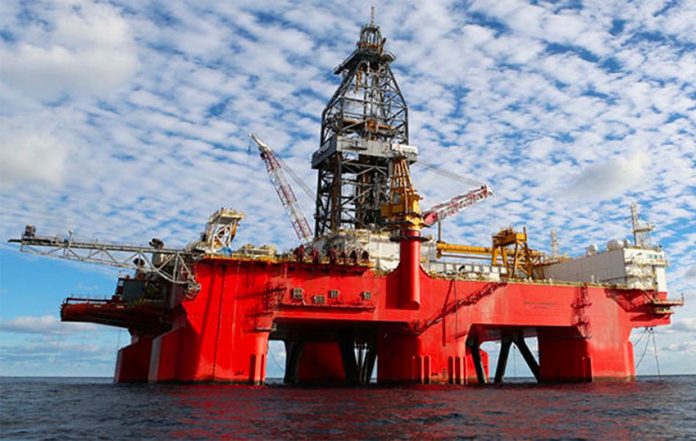President López Obrador is poised to reverse his position and allow Pemex to resume joint ventures with the private sector in 2020, according to a report in the Financial Times.
The report cites an unnamed senior government official who said the president is set to reopen private exploration in deepwater oil reserves in the Gulf of Mexico.
“We are working with the president so farm-outs [joint ventures] can start up in 2020,” the official told the Times.
“For deep water, it would all be for the private sector,” he added, explaining that included the Trion project, for which Pemex has a partnership with the multinational company BHP.
The president’s aim, the Times said, is to kick-start investment and production in the oil sector and prevent the possibility of another credit rating downgrade for the beleaguered state oil company, which has debt in excess of US $100 billion. Fitch downgraded Pemex to junk status in June and if Moody’s follows suit, a huge sell-off of the company’s bonds would ensue.
“If he makes this [joint venture] announcement soon, it could be like a one-two punch in boxing after the approval of the pipeline deal,” said Mario López, an analyst at the consultancy Empra, referring to an agreement the government struck with three pipeline companies this week that settled a dispute between the parties.
“It would be the perfect combination, sending the right signals to the world that he is more open to the private sector. It could clearly reduce the risk of a downgrade if he manages to announce it before the end of the year.”
If would also be a major reversal in policy direction for the López Obrador administration.
The president was a staunch opponent of the previous government’s energy reform, which opened up the oil sector to foreign and private companies after almost 80 years of state control.
It was also intended to bring in expertise that Pemex did not have, particularly in deepwater drilling.
But upon taking office López Obrador put an end to joint ventures with Pemex and postponed oil block auctions.
Now, with economic growth slowing and investment stagnating, he is facing pressure to pacify investors.
López Obrador met on Wednesday with Claudio Descalzi, head of the Italian gas and oil company Eni, providing a sign that his attitude towards private investors could be less fierce than it once was.
Petroleum production in Mexico has been on the wane for a decade and a half and Pemex is continuing to struggle to boost production.
The government announced a US $5.5-billion rescue plan for the state-run company in February that was aimed at reducing the oil company’s financial burden and strengthening its capacity to invest in exploration and production.
However, financial institutions rejected the plan, describing it as insufficient and disappointing.
In July, the government presented a new business plan but many analysts said that it ignored the concerns of rating agencies and experts.
“It’s a very ideologically loaded business plan, it limits the participation of private companies in a big way and forces Pemex to do everything itself,” said Pablo Medina, vice president of Welligence Energy Analytics, adding that the state oil company needs “to take advantage of what the energy reform allows, leverage capital and stop trying to do it all by themselves.”
It appears that the president may have come around to that view.
Source: Financial Times (en)
